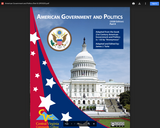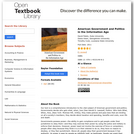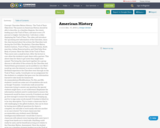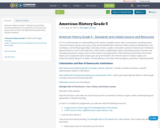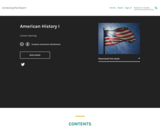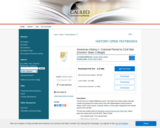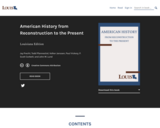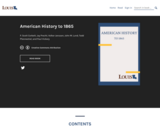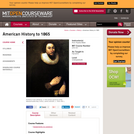Concept: Cherokee Nation History- The Trail of Tears
Objectives: The juniors in American History should be able to describe, in a timeline diagram, the events leading up to the Trail of Tears, and must score a 75 percent or higher.
Introduction: I will show a video displaying the Trail of Tears. The video will introduce the upcoming new information of the Cherokee, since the class learned about the actions the Cherokee took during the Civil War.
Vocabulary: Cherokee Nation, Andrew Jackson, Trail of Tears, civilized tribe(s), death marches, Indian Removal policy, and Chief John Ross
Body of Lesson: Show the video of the Trail of Tears. Then move onto a small lecture. After the lecture is over allow the students to pair share with a partner. This allows time for them to get notes they might have missed. The bring the class back together for a group discuss to talk about if the actions by the Cherokee and United States government can be justified or not. Next I would go onto the interest to access a website that has firsthand experience the Cherokee went through on the Trail of Tears. Lastly, I would give out an assignment for the students to complete that goes over the information learned to take home for homework.
Accommodations/Modifications: For ELL and ESL students I would use some sort of translation site such as Google Translate. I would also walk around the classroom trying to answer any questions the special students might have, or not understand. Emphasize the information students need to understand to ensure the homework would be done correctly. If students are deaf go slow enough to ensure the translator is keeping up, and try to sign some words myself. If student is blind try to be very descriptive. Try to create a classroom that is still challenging to the gifted students, this can be done by having more difficult questions for them to complete, but still able to work easily with one another so no one is bored. Try to have classroom that accommodate any students need.
Multiple Intelligence(s) Addressed: I would like to have a classroom with almost every learning style used, have it range from hands on to visual aids. Anything could really be used, and be beneficial as long as it relates to the Cherokee Nation.
Assessment: Have the student write out a timeline of events leading up to the Trail of Tears, which they will have to score a 75 percent or higher on.
Materials: Textbook (depending what book the school has), use The West: An Illustrated History; By: Geoffrey C. Ward; 9780316735896; Little, Brown and Company, http://www.learnnc.org/lp/editions/nchist-newnation/4532 for personal experience from soldiers point of view, http://www.bringinghistoryhome.org/assets/bringinghistoryhome/(3)%20indianremoval.pdf has experiences and activity plus talks about the five civilized tribes.
Standards: SS 12.4.2 (US) Students will analyze and evaluate the impact of people, events, ideas, and symbols upon US history using multiple types of sources. SS 12.4.5 (US) Students will develop historical research skills.

